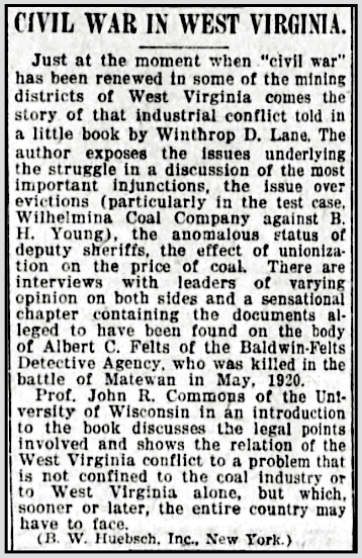Let the voice of the people be heard.
-Albert Parsons
~~~~~~~~~~~~~~~~~~~~~~~~~~~~~~~~~~~~~~~~~~~~~
Hellraisers Journal, Wednesday January 31, 1917
Washington, D. C. – Government Printing Office Publishes Reports
From The Labor World of January 27, 1917:
COMPLETE REPORTS ARE BEING PRINTED
—–
Commission on Industrial Relations
Issues Volumes on Testimony
Submitted to Congress.
—–
(By DANTE BARTON.)
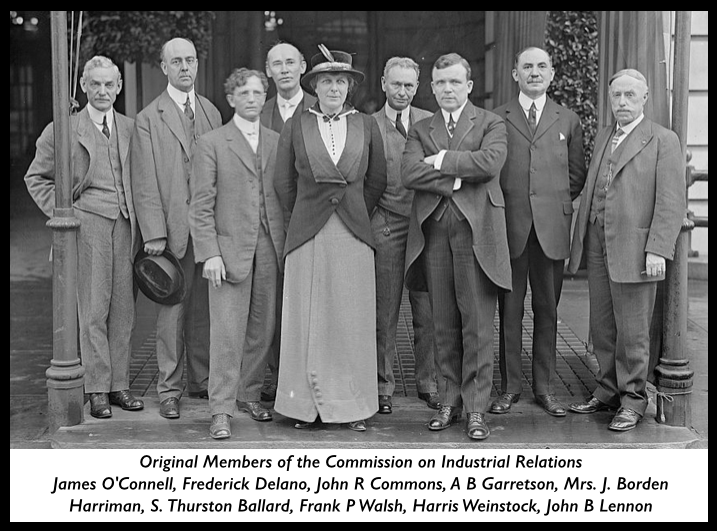
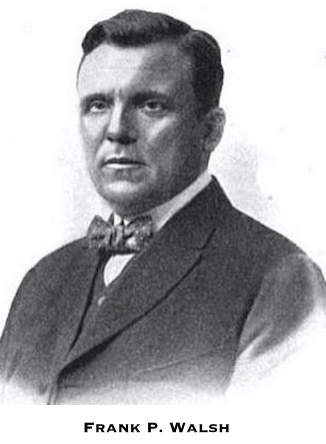
NEW YORK, Jan. 25.—There has just been issued from the government printing office in Washington the completed volumes of the testimony submitted to congress by the United States Commission on Industrial Relations of which Frank P. Walsh was chairman.
One of the first of the important industrial acts of the Wilson administration was the appointment by President Wilson of this Industrial Relations Commission with the following membership selected by him. Frank P. Walsh of Missouri, chairman; John R. Commons of Wisconsin and Mrs. J. Borden Harriman of New York, representing the general public; John B. Lennon of Illinois, James O’Connell of Washington, D. C., and Austin B. Garretson of Iowa, representing organized labor; and Frederick A. Delano of Kentucky, representing employers. Upon the resignation of Mr. Delano, to accept a place on the Federal Reserve board, the president named Richard H. Aishton of Illinois, who finished out the term. [Note: The Labor World here neglects to name Harris Weinstock of California and S. Thruston Ballard of Kentucky, both representing employers.]
When the European war was in its beginning and at its height of public interest the news of it was shared on the front pages of all the daily newspapers throughout the country by the news of the hearings conducted by the Walsh commission. Of such tremendous importance were the facts brought out by the commission, so thorough, so inclusive of all phases of the national life and so all embracing in the character and interests of its witnesses were the hearings that the proceedings of the commission were as vital and absorbing of the public interest as was the contemporary news of the greatest world conflict in history.
Continue reading “Hellraisers Journal: Published! 10,000 Copies of Eleven-Volume Sets of Testimony Submitted to Congress by Commission on Industrial Relations” →
 —————
—————
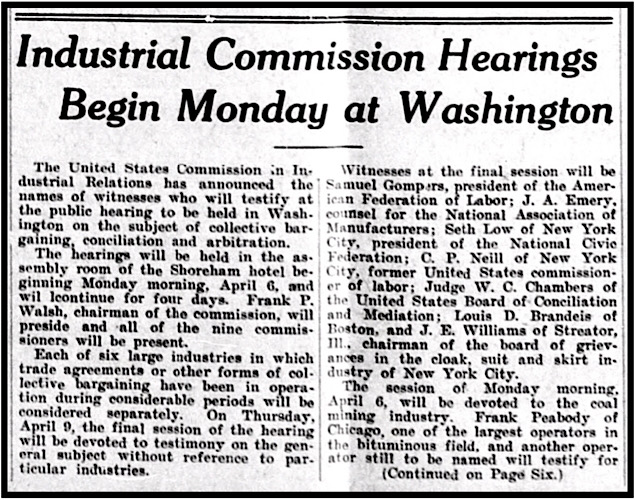
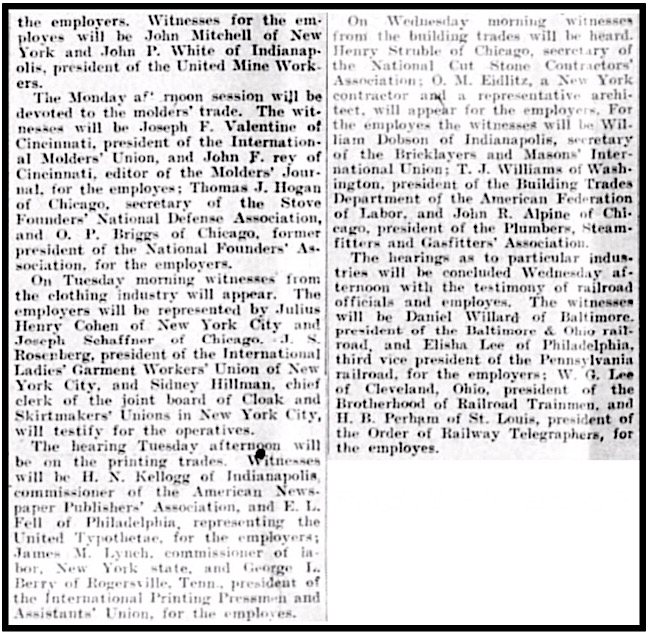
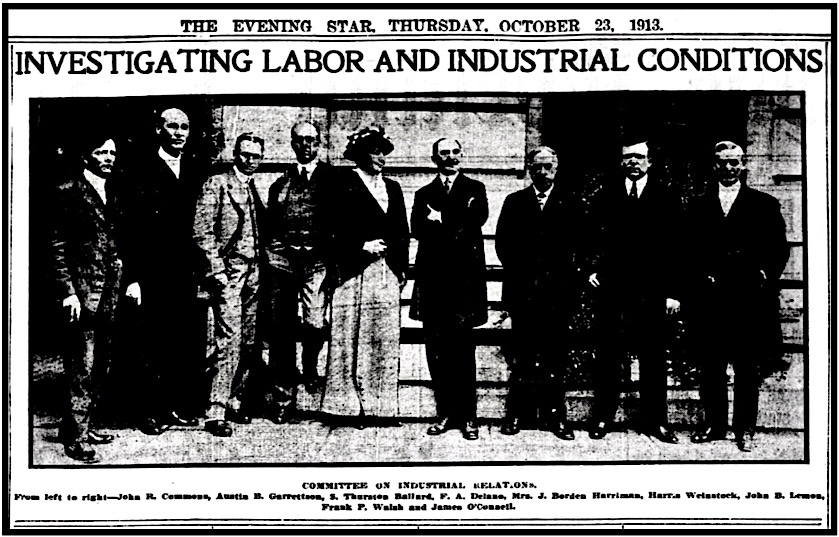
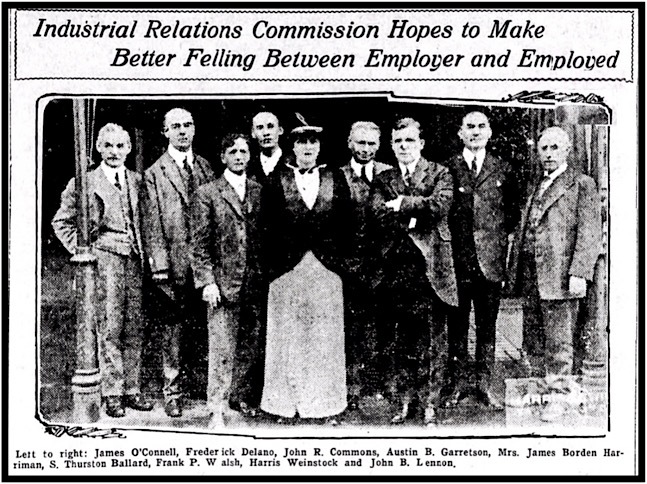
 —————
—————